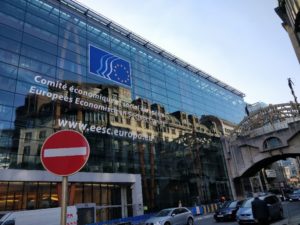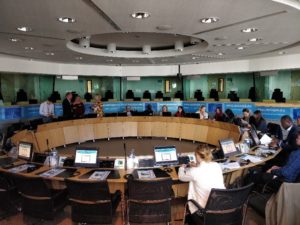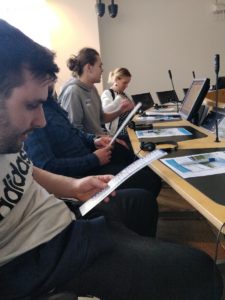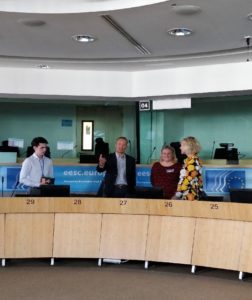We visited the European Economic and Social Committee (EESC) on October 4, 2018, which was part of our Brussels project trip as International Business students of Häme University of Applied Sciences. The participants went through a thorough security checks and our host Juri Soosaar took us to their conference room and warmly welcomed us.
I and my group member started by presenting to our colleagues the establishment and the role of EESC to the European Union, employees, workers organizations and other interest groups. After our presentation, our host gave us a very interesting lecture on the structure of EESC and its core mandate in the European Union setup. The EESC is an advisory body with 350 members from all the EU countries, their term runs every 5 years, and each country representative depends on the population of the country. The EESC holds election for its President and two (2) Vice-Presidents for two-and-a-half year term. The members meet nine (9) times a year in a plenary session where opinions are adopted by a simple majority vote and they work for the EU independently of their government. The EESC keeps in touch with the regional and national economic and social councils throughout the EU mainly to share information and discuss particular issues. The EESC ‘observatories’ and the Europe steering committee track the progress of EU strategies.
The Presentation held by Juri Soosaar introduced key views of the EESC concerning collaborative economy and its taxation. The EESC believes that collaborative economy is a new growth opportunity for European countries and taxation laws must be applied intelligently for them not to be on the way of market development. EESC wishes that the European Union would take actions to negotiate common rules beyond the Union for digital economy, which typically operates without country specific borders. The EESC points out that within digital economy also, three key rules must be implemented: 1. Consumer rights. 2. Privacy and the processing of personal data. 3. workers and service providers involved in the new business models and in the work of collaborative platforms, must be protected and respected. The EESC urges the European Union commission and member states to work together for common taxation policies for the new forms of business developing as a result of the collaborative economy.
The host also gave us an overview of the sitting arrangements of the conference room during meeting where the President sits, Vice-Presidents and the member with opinions sits. The EESC also offers both short and long-term traineeship to university graduates and students who are required to complete a short-term traineeship as part of their degree.
Our Wow Moment
The incredible professionalism and passion our host Juri showed towards the discussed topics and his amazingly inspiring presentation skills.

The EESC main building.

The presentation room, where the official meetings are also held.

Inspired HAMK BNI16 students.

Juri Soosaar, his intern and HAMK IB teachers Annaleena Kolehmainen and Annikka Lepola discussing after the presentation.
Made by IB students Peter Aziati & Elias Achte